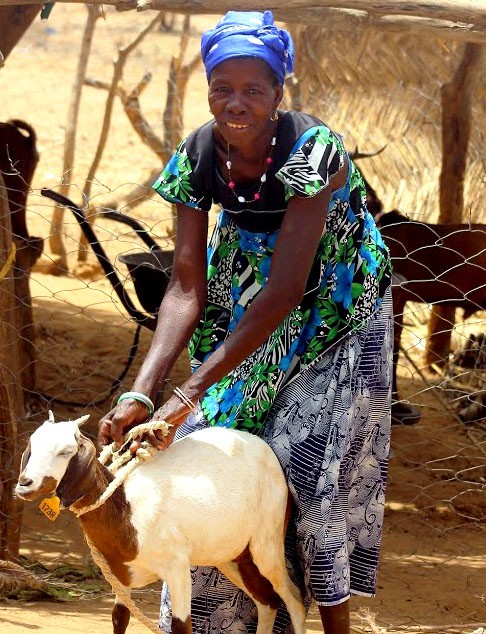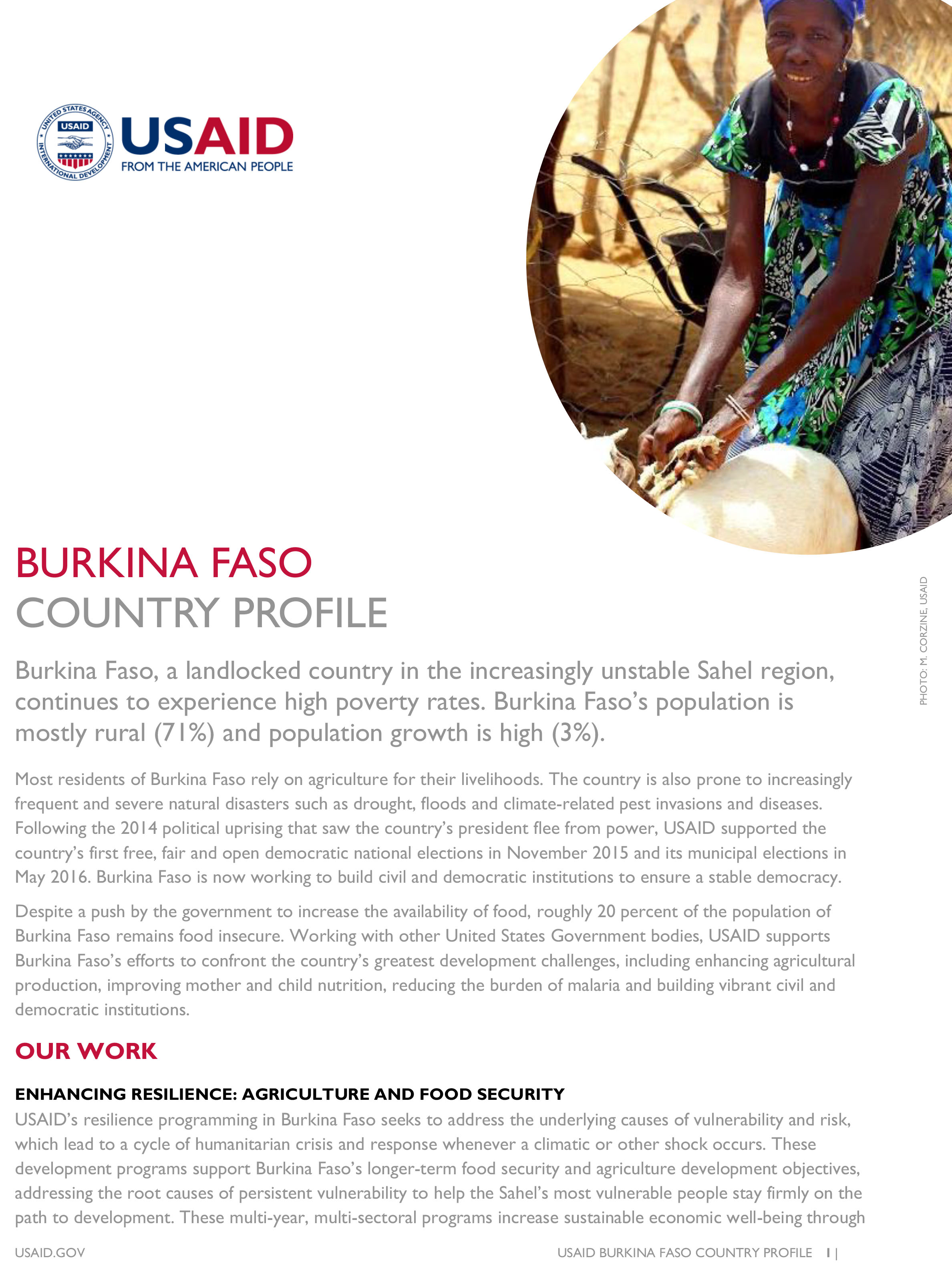
Burkina Faso, a landlocked country in the increasingly unstable Sahel region, continues to experience high poverty rates. Burkina Faso’s population is mostly rural (71%) and population growth is high (3%).
Most residents of Burkina Faso rely on agriculture for their livelihoods. The country is also prone to increasingly frequent and severe natural disasters such as drought, floods and climate-related pest invasions and diseases. Following the 2014 political uprising that saw the country’s president flee from power, USAID supported the country’s first free, fair and open democratic national elections in November 2015 and its municipal elections in May 2016. Burkina Faso is now working to build civil and democratic institutions to ensure a stable democracy.
Despite a push by the government to increase the availability of food, roughly 20 percent of the population of Burkina Faso remains food insecure. Working with other United States Government bodies, USAID supports Burkina Faso’s efforts to confront the country’s greatest development challenges, including enhancing agricultural production, improving mother and child nutrition, reducing the burden of malaria and building vibrant civil and democratic institutions.
Burkina Faso Country Profile ![]() (pdf - 175k)
(pdf - 175k)
Enhancing Resilience: Agriculture and Food Security
USAID’s resilience programming in Burkina Faso seeks to address the underlying causes of vulnerability and risk, which lead to a cycle of humanitarian crisis and response whenever a climatic or other shock occurs. These development programs support Burkina Faso’s longer-term food security and agriculture development objectives, addressing the root causes of persistent vulnerability to help the Sahel’s most vulnerable people stay firmly on the path to development. These multi-year, multi-sectoral programs increase sustainable economic well-being through increased agricultural productivity, income diversification, and access to markets and financial services; furthermore, USAID programs aim to improve the nutritional status of women and children and increase the capacity of local governance structures particularly in managing natural resources. USAID is also working on improving the policy and regulatory environment for nationwide plans and implementation of the land tenure law.
Global Health
Despite some progress, the high level of poverty in Burkina Faso contributes to a dire health situation. Malnutrition and malaria are widespread, and many citizens have little or no access to basic health care or clean water. USAID’s primary focus in the health sector is on expanding the prevention of and treatment for malaria. USAID works closely with the Government of Burkina Faso to reduce morbidity and mortality due to malaria, primarily targeting children under 5 years old and pregnant women as the populations most vulnerable to this disease. USAID’s efforts on malnutrition focus on improving the health of pregnant women, lactating mothers and young children by providing education and training to women regarding feeding practices and improving the quality of a family’s diet. Burkina Faso is also a phase one priority country for the US government’s role in supporting the Global Health Security Agenda, which seeks to accelerate progress toward a world safe and secure from infectious disease threats and to promote global health security as an international security priority.
Humanitarian Assistance
As of December 2016, Burkina Faso continued to host more than 30,000 Malian refugees, the majority of whom reside in food-insecure northern regions, where already-scarce host community resources are strained by the presence of additional families. USAID’s Food for Peace (FFP) office partners with the World Food Program to provide emergency food assistance to this refugee population in the form of commodities and cash resources.
Democracy, Human Rights and Governance
USAID works with Burkina Faso’s National Assembly to support new members in their representation, legislation and oversight functions. USAID also provides technical assistance to civil society organizations to promote better governance. In addition, USAID works with youth, religious leaders, civil society and local governments to reduce the risk of instability and increase resilience to violent extremism. Using a holistic, community-led approach, USAID builds economic opportunities, promotes moderate voices, fosters civic participation and promotes government responsiveness. The target population in Burkina Faso is women and youth who are often marginalized from the political process and who are more prone to being recruited by violent extremist organizations.









Comment
Make a general inquiry or suggest an improvement.